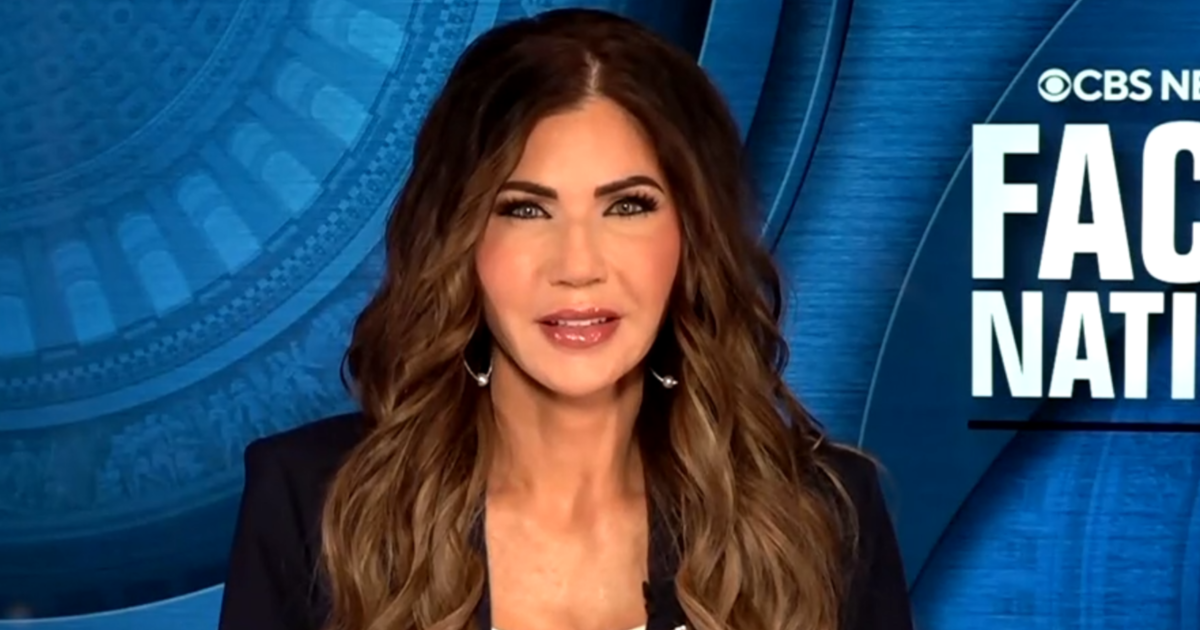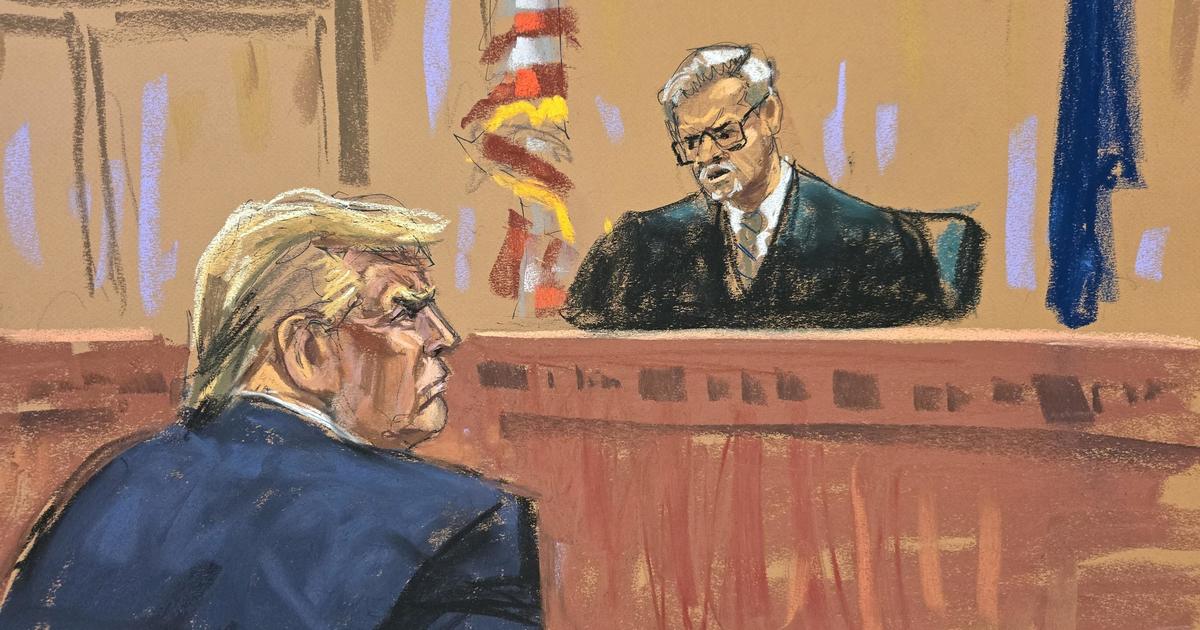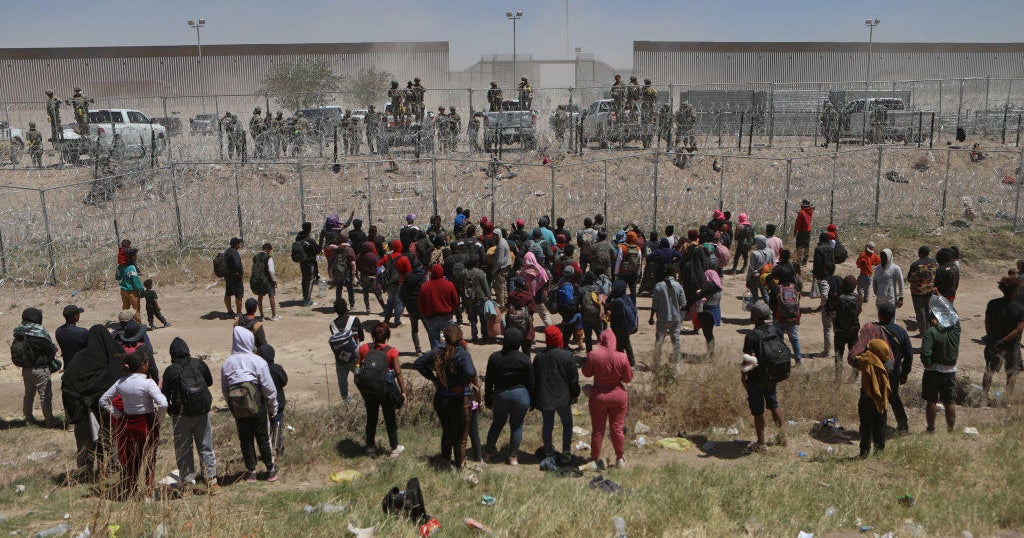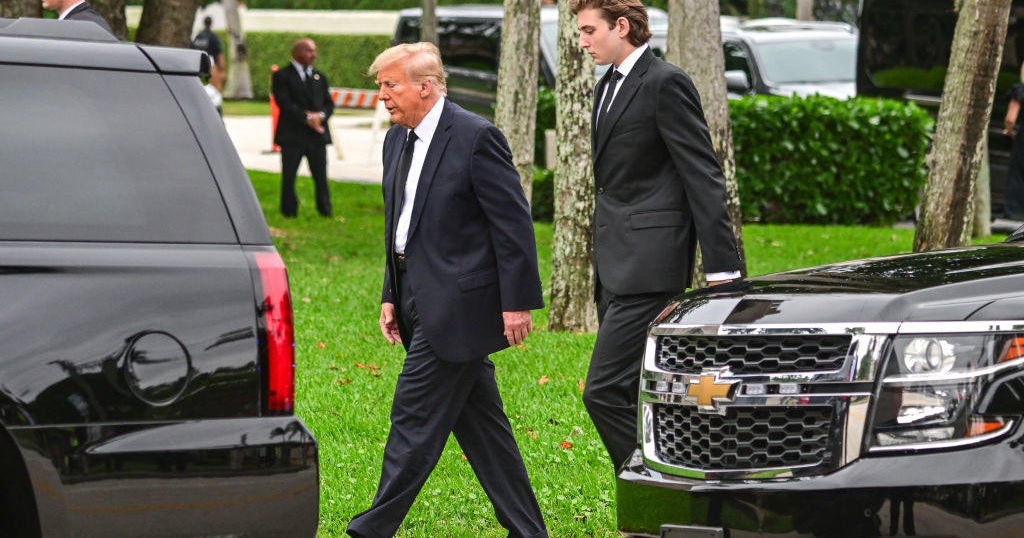Transcript: Former DHS Secretary Jeh Johnson on "Face the Nation," July 14, 2019
The following is a transcript of the interview with former Department of Homeland Security Secretary Jeh Johnson that aired Sunday, July 14, 2019, on "Face the Nation."
MARGARET BRENNAN: Secretary Jeh Johnson served in the Obama administration and he joins us from New York this morning. Good morning to you, Mr. Secretary.
JEH JOHNSON: Hello.
MARGARET BRENNAN: President Obama deported 3 million migrants from the United States. You were secretary at that time. How is what President Trump is trying to do any different?
JEH JOHNSON: Well, first, Margaret I have to say Mr. Morgan ducked your question about the president's tweet. I will not. I cannot believe a president of the United States would make a statement about foreign born members of Congress suggesting they- they go back from where they- from where they came from. And what the president needs to appreciate, in addition to it being offensive, you are undermining your very own administration's efforts at working with Congress constructively on what Mr. Morgan referred to as needed legislative fixes. And so Americans should not become numb to this kind of- of language and- and offensive statements and we need to work with Congress and the executive branch in order to get anything done. So, in the Obama administration, certainly the last few years I served as secretary of homeland security, we prioritized from within the interior deporting those who are convicted felons. You have to also have as a priority those apprehended at the border for the sake of border security, but the number of deportations over time in the Obama administration actually went down while the percentage of those deported who were convicted felons and who were in local jails went up. And it- it's all about enforcing our immigration laws, but in a way that is fair and humane and promotes public safety and that was our priority. And on day one of this administration the president literally tore up those priorities.
MARGARET BRENNAN: The president--
JOHNSON: And so now--
MARGARET BRENNAN: The president--
JOHNSON: You're seeing these- these ex-
MARGARET BRENNAN: Sorry, go ahead.
JOHNSON: Go ahead, sorry.
MARGARET BRENNAN: The president, some in his administration said they're up to one million migrants that have pending orders of removal against them. Is- is it realistic to say that many people can be deported?
JOHNSON: No, it is not. And it's important for people to know their rights in this circumstance. If someone from ICE ERO comes to someone's home, unless they have a warrant that person is not required to- to admit them. They have a right to remain silent. They have a right to a lawyer and they should not be deported from this country unless there has been a final order of deportation by an immigration judge after the individuals had an opportunity to go through the appellate process and make whatever claims for asylum they- they have. And so there must be a final order of removal. Very often if someone's ordered deported in absentia without being present in court they have a right to a rehearing. And so it's important for people particularly today and over the next week to know exactly what their rights are.
MARGARET BRENNAN: We've been talking about the conditions at facilities, detention facilities of many forms under the Trump Administration. I want to show an image of you touring a facility in Arizona back in 2014. President Trump often refers to the language referring to these chain link fence dividers, cages as some call them, as "unique," that the Obama administration is doing though all of this in a way that he just had to continue, that he is doing things essentially the same way. He inherited the policy. What's so different?
JOHNSON: Well there are a number of things different, Margaret. First there was no zero tolerance policy in the Obama administration. We did not separate families as a policy and practice. And the photograph you showed, I remembered that visit well. It was Arizona. It was June 2014, during the spike we had then, though the numbers were not as high as they are now. And under the law if you have an unaccompanied child cross the border, DHS within 72 hours is required to turn that child over to- to HHS. And in that 72 hour period we needed to have places like the one we set up temporarily in Arizona to- to house the kids until they could be placed with HHS and the partitions you see, some call them cages, are meant to separate the- the women from the men, the girls from the boys. But these were temporary. What that photograph doesn't show is, I probably spent half my time at that facility actually inside those fenced in areas talking to the- the young boys and girls about their situation and about the conditions.
MARGARET BRENNAN: Alright, Secretary Johnson, thank you for your time.



